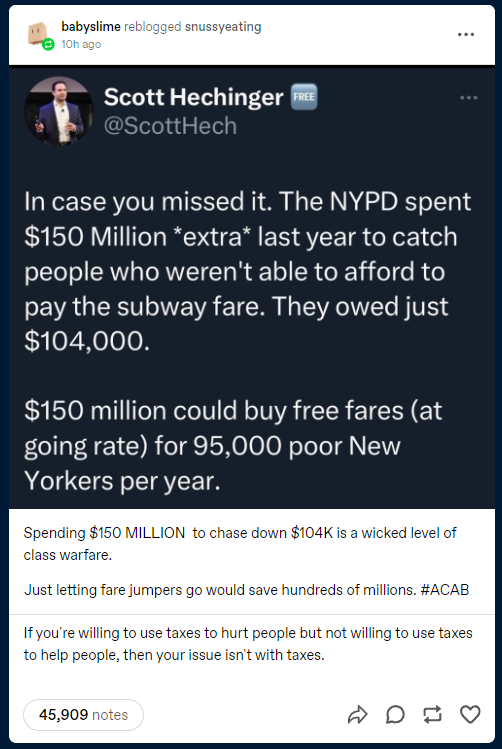this post was submitted on 14 Feb 2024
1577 points (97.0% liked)
tumblr
4106 readers
265 users here now
Welcome to /c/tumblr, a place for all your tumblr screenshots and news.
Our Rules:
-
Keep it civil. We're all people here. Be respectful to one another.
-
No sexism, racism, homophobia, transphobia or any other flavor of bigotry. I should not need to explain this one.
-
Must be tumblr related. This one is kind of a given.
-
Try not to repost anything posted within the past month. Beyond that, go for it. Not everyone is on every site all the time.
-
No unnecessary negativity. Just because you don't like a thing doesn't mean that you need to spend the entire comment section complaining about said thing. Just downvote and move on.
Sister Communities:
-
/c/TenForward@lemmy.world - Star Trek chat, memes and shitposts
-
/c/Memes@lemmy.world - General memes
founded 2 years ago
MODERATORS
you are viewing a single comment's thread
view the rest of the comments
view the rest of the comments

The struggle here is that you're talking about money earned after the fact and not including game theory. It would be a tough experiment to conduct, but say you spent $150 million to save $104. What if you didn't spend that $150M? Would you have an extra $40k in the bank? Or would the $104M in losses actually end up more like $1.2B because, slowly, everyone realised there was no reason to pay a fare?
I don't know what the case is here, but I imagine some economists have determined that $150M is enough to balance between actually getting people to ride the subway (increasing fare will eventually drive down revenue) and a substantial enough threat to prevent jumpers (no cops in the way means tons more jumpers).
104k loss, not 104m. It would take 150 years of no change to be worth the tax money wasted.
The fact you didn't even realize the difference factor of 1000x between the two values is enough to show your argumentation is worthless :D